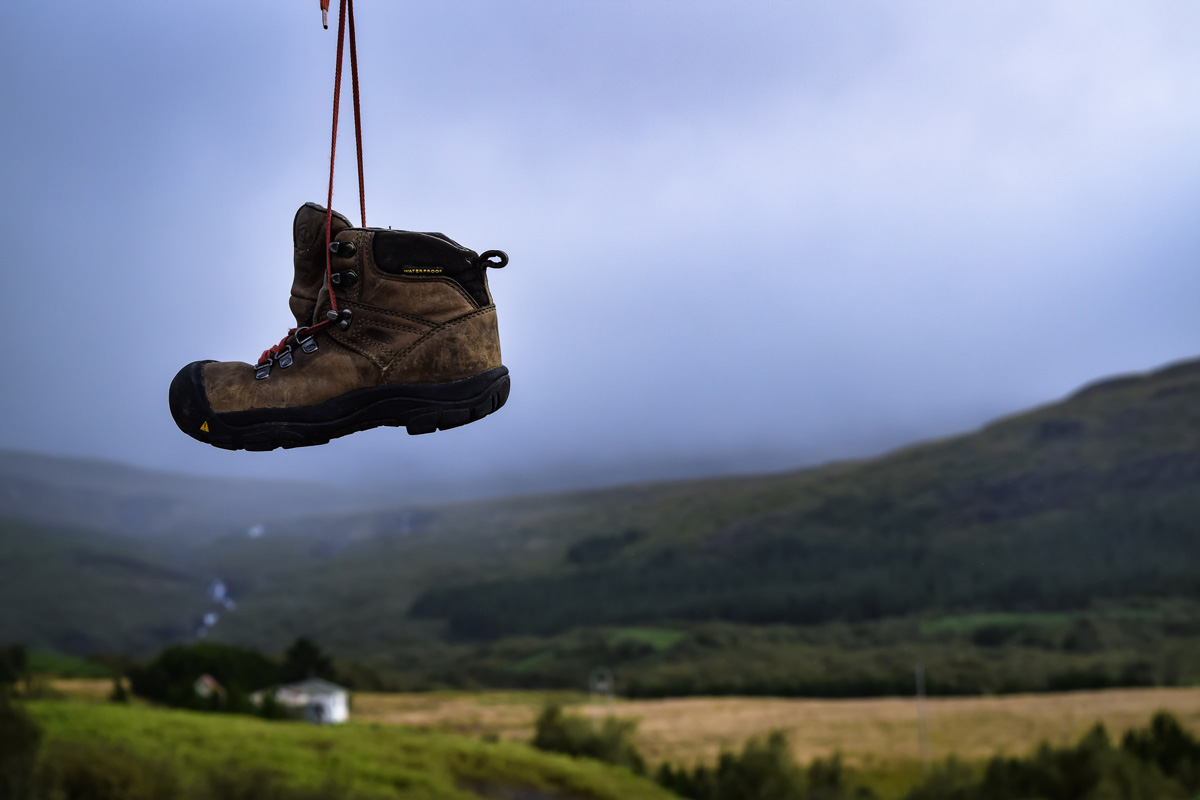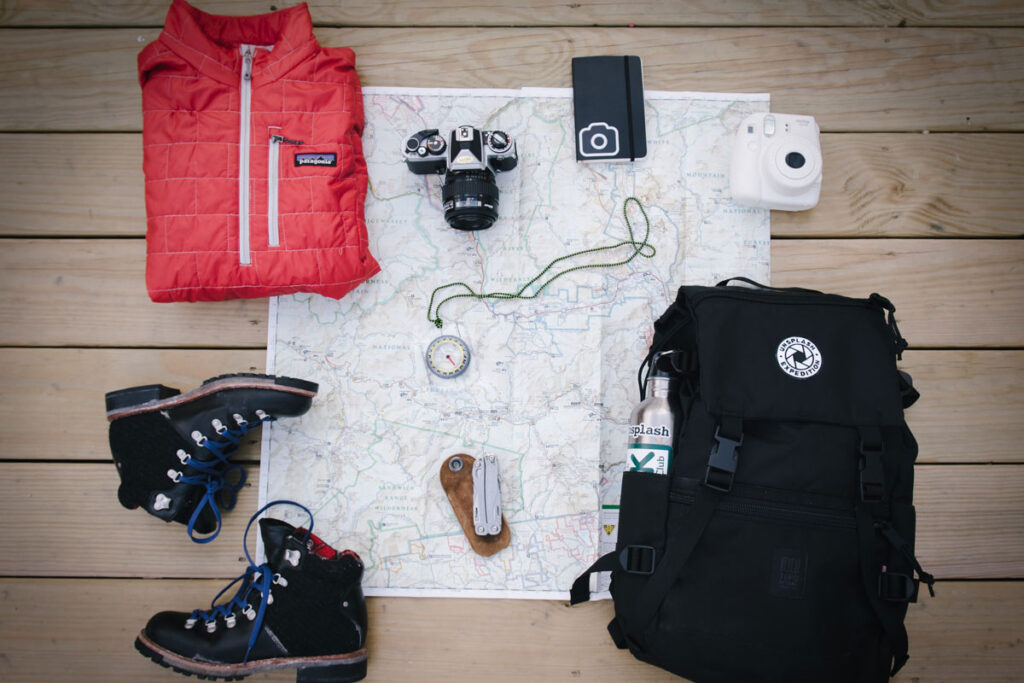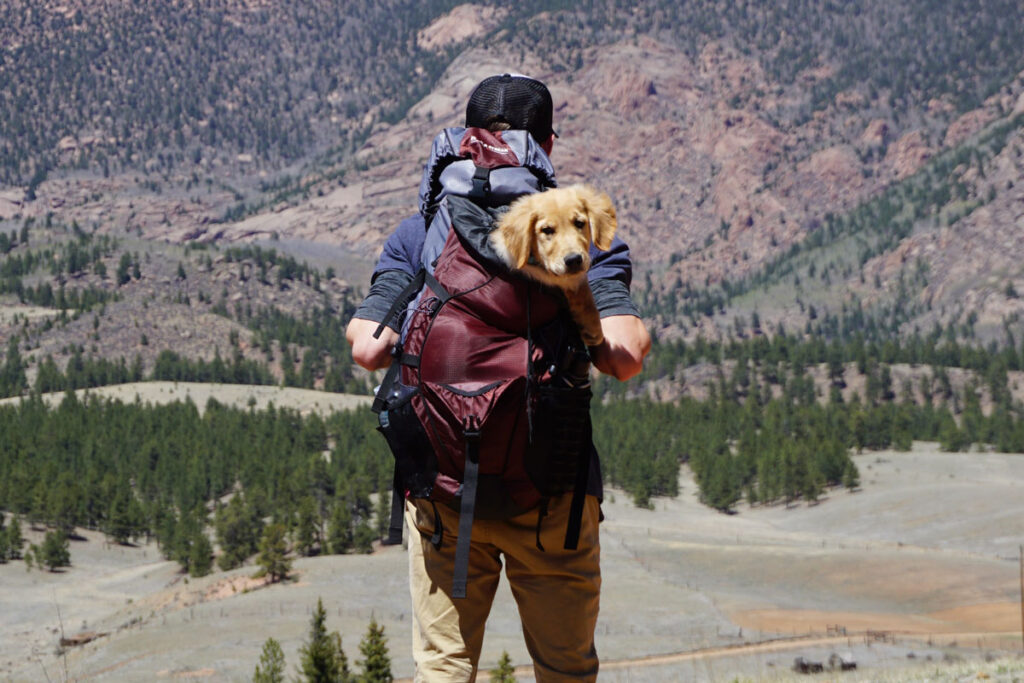My ears are piercing with the question – “do you need waterproof hiking shoes?” The answer to the question is somewhat technical, and after researching for days, we have successfully found out the solution. That’s interesting! So you must go through the following blog post if you want to know whether you need waterproof hiking shoes or not.
Hiking can be great when you feel comfortable. It’s highly suitable for physical and mental health. Therefore, you can do it whenever you get time. Discovering new things is a matter of great joy, and it will add much pleasure if you select a perfect pair of shoes. Ain’t I, right? Yes, of course! Surprisingly, you will get both waterproof and non-waterproof shoes on the market. But which pair should you choose? Don’t be disappointed. Let’s find the answer from the following passages:
What is a waterproof hiking shoe?
With the advancement of science and technology, fortunately, you have waterproof shoes out there. Generally, the manufacturers use a waterproof membrane to make a shoe water-resistant. To do this, they apply high-quality membranes under the outer shell. On the other hand, these membranes are made from quality polytetrafluoroethylene. They also use them inside the upper portions making a shape like a sandwich. Among the membranes, Gore-Tex is the most famous and durable one. Apart from that, they also use a durable water repellent (DWR) coating for additional protection.
You should know that waterproof shoes have less breath ability than those of non-waterproof ones. The manufacturers use breathable and well-ventilated mesh liners to make Non-waterproof shoes. That is why the air can easily pass through them, and you feel more comfortable as the process keeps your feet dry.
On the other hand, waterproof shoes usually don’t have a well-ventilated upper, and your feet sweat a lot, and you feel discomfort. Just think about a plastic bag. If you wear it for a long time, the air cannot pass through it, and as a result, your feet will be damp and sweaty. But if the shoes contain Gore-Tex membranes, you don’t need to worry at all because they let moisture pass through and keep your feet dry.
Generally, a waterproof shoe is more expensive because the construction cost is naturally higher. Besides, it’s heavier as additional substances are used while making it. If you afford it, you can buy a pair for your hiking purpose. Otherwise, you should select a non-waterproof one.
Read More About A Full Day Hiking Checklist for 2021.
Are waterproof shoes effective for hiking?
It’s a fact that making a shoe 100% waterproof is difficult. If you have any, remember, the shoe has less breath ability. You will feel better soon after the beginning of your hike, but with the advance of the day, your feet gradually start sweating, and you feel more uncomfortable. If you want more breath ability, your shoe will lose some waterproofing capabilities.
Remember, your water-resistant shoes will keep you dry for some time in a wet environment. But whenever you spend more time, mud, sand, and dirt, the membrane is dirty, and the shoes gradually lose their waterproof ability. In this situation, the shoes will be affected in two ways – inside for heavy sweating, and outside moisture. If you want to hold the performance, you need to wipe out the shoes frequently. But is it always possible to continue the job in harsh terrain or on a long journey?
The heels’ height also plays a vital role while going through a deep river or flowing creek. A pair of shoes with higher ankles help you cross them with ease; still, you will have the chance to splashes. Your waterproof shoes will work here; nevertheless, you are requested to clean them just after crossing the path as soon as possible. Read more about Merrell Men’s Moab 2 Waterproof Hiking Shoe here…
Do your waterproof shoe dry faster?
Accidentally, both waterproof and non-waterproof shoes can get wet. As the non-waterproof ones consist of mesh or large pore fabrics, they have faster drying rates. The air can flow smoothly through them that accelerates the drying process. Unlikely, the waterproof shoes are made of heavy materials, and that is why they have less airflow rate. When water enters the liner, it takes more time to dry. Another problem is that the situation makes the shoes heavier, and you find it challenging to carry the extra burden. Moreover, it causes severe irritations to your feet.
Are there any differences between waterproof, water-resistant, and water-repellent shoes?
Though their meanings are the same, they have differences. So you have to be careful while buying a pair. You will find the label on the shoe. The shoe with a waterproofing label performs better than the water-resistant one. It has more water protection capability and can dry faster. On the other hand, the water-repellent shoe is made of surface-coated, such as DWR that drives back-light moisture but has less durability and can get damaged over time.
When to use a non-waterproof shoe
You need not use a waterproof shoe all the time. Unfortunately, buying it can be a mere wastage of money. At the same time, it’s better not to carry the extra burden all the time. So to hike during a dry and hot climate, you had better use non-waterproof shoes. Frankly, it’s useless to use waterproof shoes at that time because you will get wet with your own sweat when there is no rain at all.
In this case, you should choose a non-waterproof one. It will enhance breath ability; you feel comfortable and quickly reach your destination. Moreover, it reduces wet, raises sweat evaporation, and provides higher hiking output. Though it may seem opposite to your idea, we recommend using a non-waterproof shoe even to cross frequent and deep rivers. The fast-drying option it has – is highly convenient for hiking.
When to use a waterproof shoe
Undoubtedly, waterproof shoes are incredibly ideal for wet and cold weather and even snowy and muddy terrain. Also, they are perfect for cold weather. Whether you go for a winter hike, day trip, or shallow stream crossing, these shoes can handle the situations with ease. During these periods, you sweat less. Therefore, your feet will also sweat less even if you put them on throughout the whole day. Also, they are highly suitable for moderate snow and rain. Read more about KEEN Men’s Targhee II Mid Waterproof Hiking Boot here…
The conclusion
You have already decided whether you need waterproof hiking shoes or not. But to sum up, I want to say more. Not all the time you need the boots, especially when it is extremely hot. In that case, heavy sweating can spoil your days; instead, you can use a non-waterproof pair then. The waterproof ones can be ideal for cold, snowy, or wet weather.



